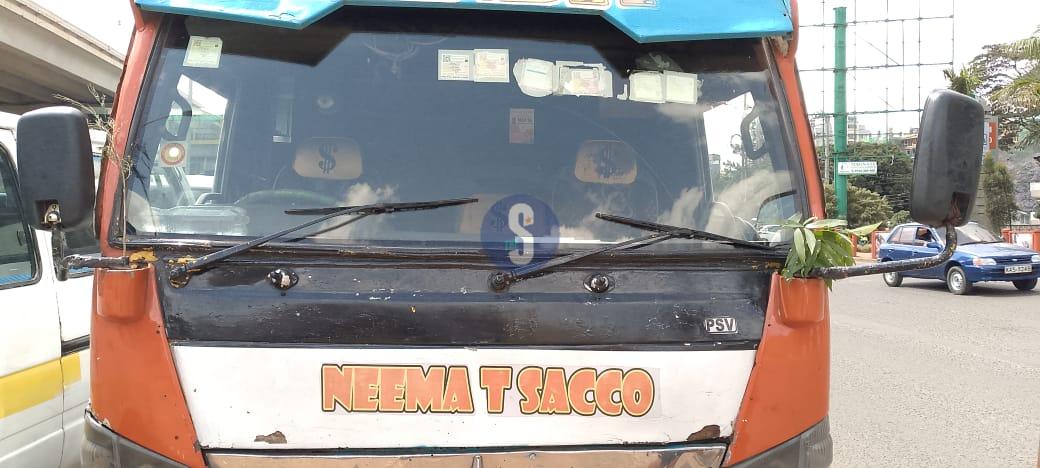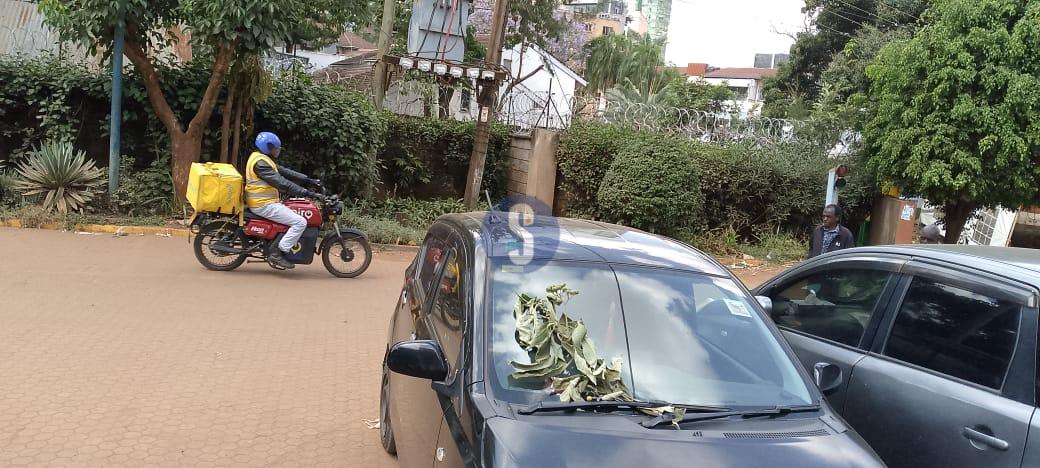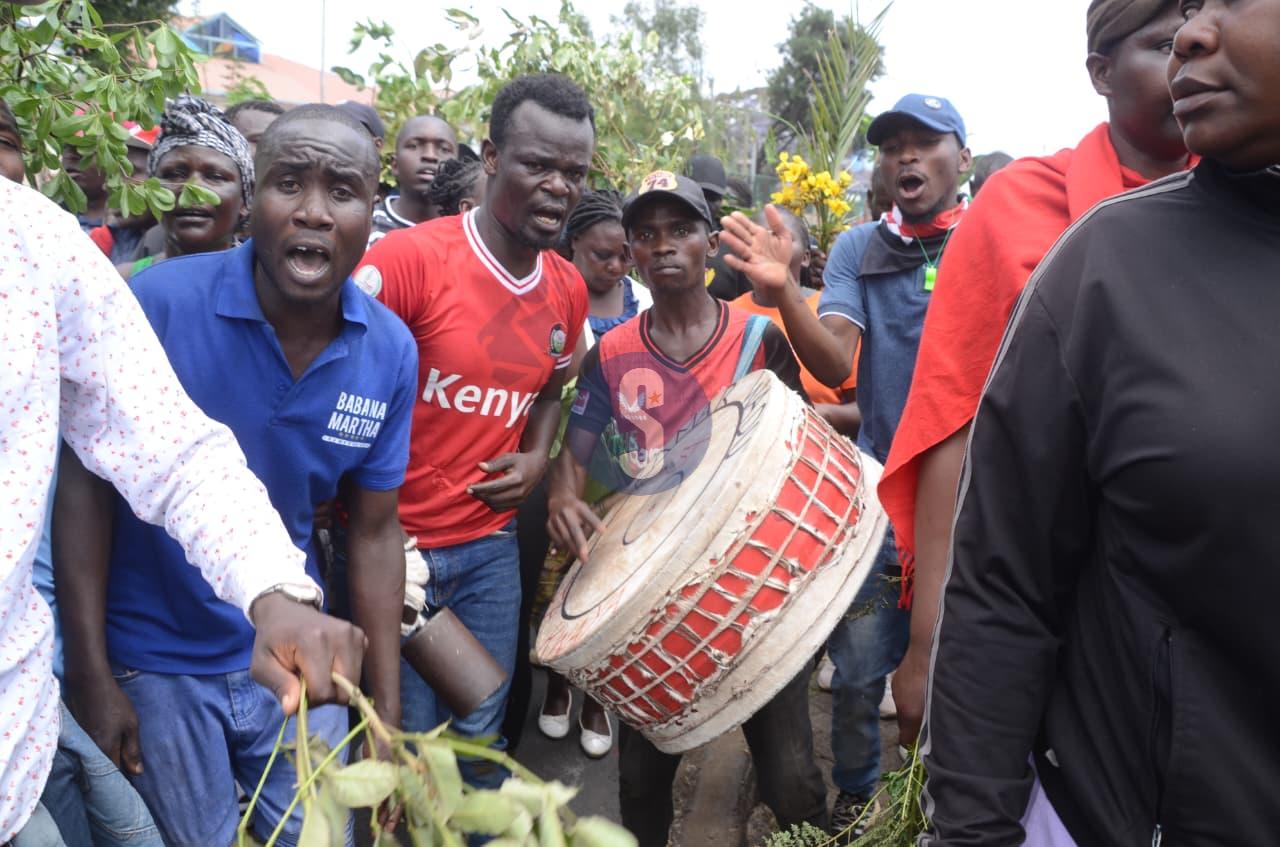

A matatu with a twig in tribute to former Prime Minister Raila Odinga/JANET ONYANGO
In the heart of Nairobi, mourning has taken on a distinctly Kenyan rhythm:
raw, visible, and deeply symbolic.
As the city reels from the passing of former Prime Minister Raila Amolo
Odinga, its streets have become a canvas of collective grief.
From matatus to private cars, boda bodas to handcarts, one symbol keeps
appearing: twigs.
Palm fronds and leafy branches are being waved from windows, tied to side
mirrors, and held aloft by pedestrians.
It is not just a gesture; it’s a language of mourning.
In Luo tradition, twigs, especially green ones, are powerful symbols of
death and remembrance.
Known as okumba, they are used to signal mourning
where tying or waving twigs shows that a household or community is in grief.
They are also used
to cleanse and protect—in some rituals, twigs are used to symbolically
sweep away death’s shadow or to protect the living from spiritual harm.
Twigs are also used to
honor the departed, where carrying twigs is a way of walking with the
spirit of the deceased, acknowledging their presence even in death.
According to cultural scholars, the act of waving twigs during a funeral
procession or public mourning is both a personal and communal expression of
loss.
It says: “We see you. We remember you. We walk with you one last time.”
Across the city, the visual impact is striking. Vehicles crawl through
traffic with twigs fluttering like green flags of sorrow.
Some drivers have tucked them under wipers or wedged them into grills.
Others have gone further, draping their bonnets with palm leaves or writing
messages of tribute in chalk and marker.
On foot, mourners carry twigs like torches. Some walk in silence, others
sing freedom songs or chant Raila’s name.
It is a grassroots procession that moves with the city, not bound by
official routes or schedules.
This is mourning in style, not in vanity, but in visibility. Nairobians are not just grieving; they are performing their grief, making it known, making it felt, and making it Kenyan.
 A car with a twig in tribute to former Prime Minister Raila Odinga/JANET
ONYANGO
A car with a twig in tribute to former Prime Minister Raila Odinga/JANET
ONYANGOVoices of mourners
Albanus Kioko, a resident of Westlands, talked of Raila’s charm and the
love he got from Kenyans, noting that his death is a great blow.
“What I’ll remember about Raila is
that even when I opposed him politically, I never gave up on him. I challenged
him, yes, but I respected him,” he said.
“And even in 2027, I would have
still stood against him. That’s how much he mattered. He was always part of the
fight.”
For many, Raila’s death is not just
the passing of a political leader; it feels deeply personal.
“The atmosphere is sad,” said one mourner, his voice subdued.
“People are touched by the loss. In one way or
another, everyone feels it.”
“He’s the only person I’ve ever voted for in
my entire life,” he added, visibly shaken.
“He shaped my political thinking. So
his death has affected me in a bad way because we’ve lost someone we all looked
to for leadership.”
Across estates, markets, and
offices, the same sentiment echoes. The grief seems to transcend location,
tribe, and class.
“You can’t say mourning Raila is
different in Nairobi or in Siaya,” the mourner said.
“Death is death, and this is Raila
we are talking about. His passing has touched everyone, everywhere.”
For many Kenyans, Raila’s public
life, from the fight for multiparty democracy to years in opposition, left a
mark that few can ignore.
“Even if for one reason or another
you hated him,” the mourner reflected, “you will still feel sad. Because at
some point, something he said or did touched your life.”
“Raila lived his life in a way that
made you think he was immortal. You never imagined one day he would die.”
Richard Moriasi, a motorist in Nairobi, described Raila as someone
who understood the struggles of Kenyans.
“We’re very sad. We’ve lost someone who stood with ordinary people. We don’t
know if we’ll ever find another person like him. But if we accept God’s will,
maybe someone else will rise,” he said, hopefully.
“I mourn him as someone who felt the pain of others. To me, he was like a
father. Not just to me, but to the whole nation.”
He added that Raila’s absence has left a gap in Kenya.
“He was the kind of leader who could speak up for us. He used to ask the
government for help on behalf of the people. Sometimes they listened. He had a
voice. Now, that voice is gone.”
“I mourn Raila Amolo Odinga as a Kenyan citizen.”
 Mourners singing heroic songs and waving twigs as they
paid tribute to former Prime Minister Raila Odinga outside Lee Funeral Home,
Nairobi on October 16, 2025/DOUGLAS OKIDDY
Mourners singing heroic songs and waving twigs as they
paid tribute to former Prime Minister Raila Odinga outside Lee Funeral Home,
Nairobi on October 16, 2025/DOUGLAS OKIDDY












